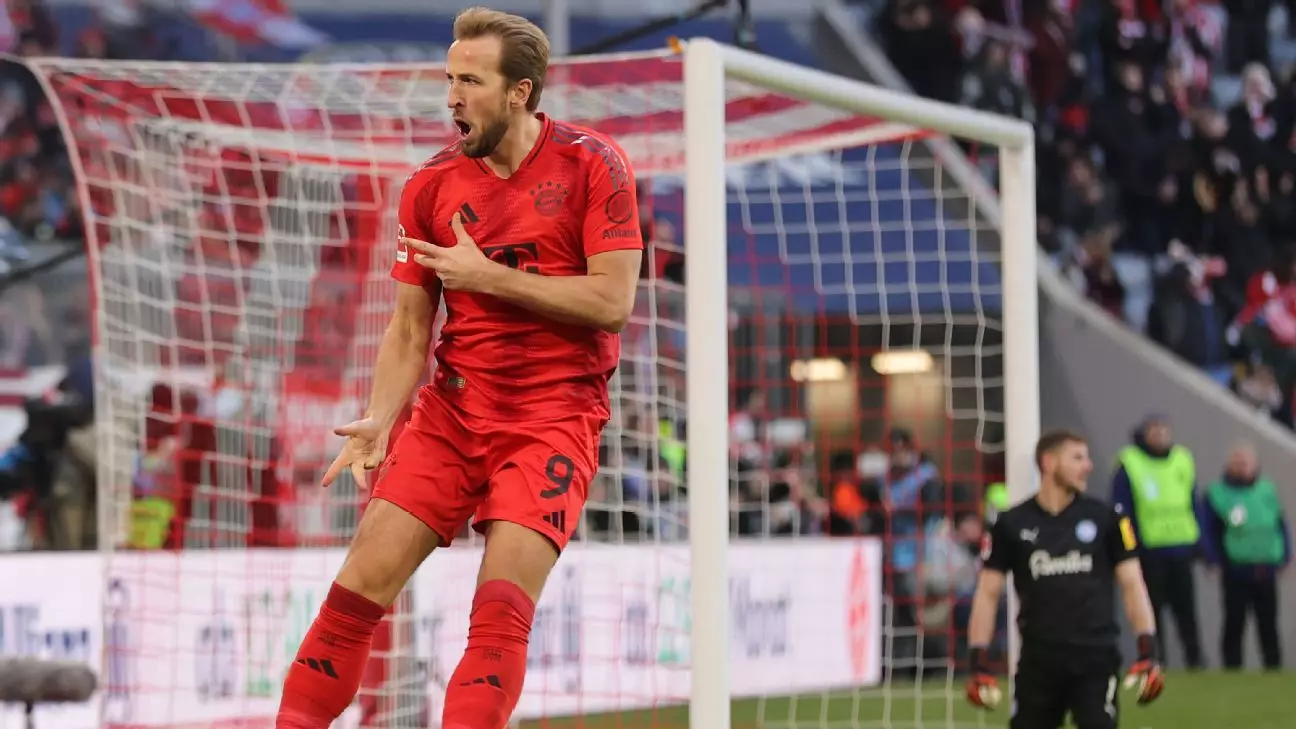Harry Kane’s transfer to Bayern Munich marked a significant chapter in his illustrious career. Having departed from Tottenham Hotspur in a record-breaking £100 million deal in August 2023, Kane has adjusted admirably to life in the Bundesliga. Recent reports indicate that his current contract contains a release clause, which highlights the strategic foresight of his contract negotiation. While it has been rumored that this clause permits his exit for about €80 million this winter and €60 million in January 2026, it is essential to consider the implications of such a move and Kane’s current sentiments.
ESPN has confirmed the existence of this release clause, although specifics were notably absent. What stands out, however, is the assertion that Kane is presently content at Bayern. Given his exceptional performance—boasting 70 goals in 72 appearances—it is understandable why he would feel at home in a team that has enabled him to showcase his skills on a prominent platform. Despite suggestions from German newspaper Bild about possible exits, it’s crucial to recognize that player happiness often dictates transfer decisions far more than financial incentives.
While there is considerable speculation regarding Kane’s future, the question of whether he might return to the Premier League looms large. The presence of the release clause could serve as an open invitation for clubs like Tottenham, Chelsea, and Manchester United, all of which have expressed needs for a quality striker. Tottenham’s first option on Kane adds another layer to the narrative, allowing them a pathway back to securing their former star. However, any potential transfer would necessitate either activating the clause or entering negotiations with Bayern.
Arsenal’s interest in Kane, despite their longstanding rivalry with Tottenham, is intriguing. Kane’s boyhood admiration for Arsenal could complicate matters, yet the likelihood of him donning their colors seems slim given the dynamics at play. This tension highlights the complexities within player transfers, where history and fan sentiments often intersect with professional choices.
Beyond the Premier League, alternative possibilities for Kane abound, including the MLS. As players like Lionel Messi and other European stars make their mark in American soccer, the idea of Kane following suit cannot be dismissed. This shift toward international leagues demonstrates the growing prestige of the MLS and its appeal to seasoned players looking for new challenges post-Premier League careers.
Furthermore, Bayern Munich’s proactive approach toward identifying possible successors to Kane suggests an understanding of the need for future planning. With talents like Benjamin Sesko from RB Leipzig entering their radar, it is evident that the Bavarian giants are preparing for life beyond Kane while valuing his contributions in the present.
Kane’s situation at Bayern Munich serves as a reflection of the crossroads many elite athletes face—balancing personal ambition, professional satisfaction, and organizational strategies. The upcoming seasons will be pivotal for both the player and the club as they navigate this complex and multifaceted landscape. Whether he remains a Bundesliga stalwart or returns to the Premier League, the footballing world will undoubtedly watch closely as Kane’s career continues to unfold.

Leave a Reply